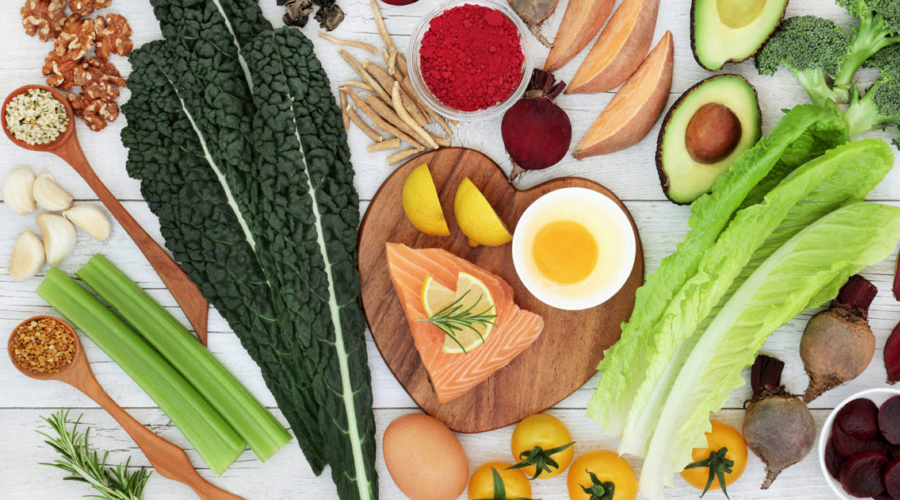In today’s health-conscious world, functional foods are gaining recognition for their ability to support overall well-being beyond basic nutrition. These foods are packed with bioactive compounds that offer a wide range of health benefits, from boosting immunity to improving heart health. If you’re looking to upgrade your diet and enhance your health naturally, exploring functional foods could be your next step. In this post, we’ll explore what functional foods are, their benefits, and provide some delicious recipes to incorporate them into your daily meals.
What Are Functional Foods?
Functional foods are those that offer health benefits beyond basic nutrition. Unlike conventional foods that provide essential nutrients, functional foods contain bioactive ingredients such as vitamins, minerals, antioxidants, and phytochemicals that can have a positive effect on specific bodily functions.
Functional foods can range from naturally nutrient-dense foods to fortified products, and they include both whole foods and processed items designed to support specific health goals, such as improving gut health, reducing inflammation, or supporting mental clarity.
Health Benefits of Functional Foods
1. Boosting Immune Health
Functional foods such as citrous fruits, garlic, and yoghurt are packed with antioxidants, vitamins, and probiotics that can strengthen the immune system. They help fight off infections and may even reduce the severity of illnesses like the common cold.
- Citrous Fruits: Rich in vitamin C, which has long been associated with supporting immune function.
- Garlic: Contains allicin, a compound known to have immune-boosting properties.
- Yoghurt: Probiotics help maintain a healthy gut, which is vital for a strong immune system.
2. Enhancing Heart Health
Certain functional foods are proven to promote cardiovascular health by lowering cholesterol levels, reducing inflammation, and improving blood circulation. Examples include foods rich in omega-3 fatty acids, fibre, and antioxidants.
- Fatty Fish (Salmon, Mackerel, and Sardines): These fish are high in omega-3 fatty acids, which are known to lower bad cholesterol (LDL) and reduce the risk of heart disease.
- Flaxseeds and Chia Seeds: Packed with omega-3s and fibre, they help lower blood pressure and cholesterol levels.
- Berries: Rich in antioxidants, berries support heart health by reducing oxidative stress.
3. Promoting Digestive Health
A healthy gut is critical for overall health, and functional foods like fibre-rich vegetables, fruits, and fermented foods can support digestion, gut flora, and improve nutrient absorption.
- Whole Grains (Oats, Quinoa, Brown Rice): High in soluble fibre, these foods can help regulate bowel movements and maintain gut health.
- Fermented foods (kimchi, sauerkraut, and kefir) contain probiotics that promote a healthy balance of gut bacteria, improving digestion and nutrient absorption.
- Bananas: Rich in prebiotics, bananas help nourish beneficial gut bacteria and aid digestion.
4. Supporting Brain Function and Mental Health
Functional foods can also support cognitive function, memory, and mental well-being. Certain nutrients have been shown to improve brain health, enhance mood, and protect against neurodegenerative diseases.
- Blueberries: Known for their cognitive benefits, they contain antioxidants that help protect the brain from oxidative stress.
- Nuts and Seeds (Walnuts, Almonds, Pumpkin Seeds): Rich in vitamin E, omega-3 fatty acids, and magnesium, these foods support brain health and improve cognitive function.
- Dark Chocolate: Contains flavonoids, which may help improve brain plasticity, cognitive function, and reduce stress.
5. Reducing Inflammation
Chronic inflammation is linked to various health conditions such as arthritis, heart disease, and diabetes. Functional foods that are rich in anti-inflammatory properties can help alleviate these issues.
- Turmeric: Contains curcumin, a powerful anti-inflammatory compound that can help reduce symptoms of chronic inflammation.
- Ginger: Known for its anti-inflammatory effects, ginger can help alleviate pain and reduce swelling in the body.
- Leafy Greens (Spinach, Kale, Swiss Chard): Packed with antioxidants and phytochemicals, these foods help fight inflammation.
Delicious Functional Food Recipes
Now that we know the health benefits of functional foods, let’s explore some easy and tasty ways to incorporate them into your daily meals. Here are some recipes to get you started:
1. Anti-Inflammatory Smoothie
Packed with turmeric, ginger, and berries, this smoothie is perfect for reducing inflammation and boosting immunity.
Ingredients:
- 1 cup of unsweetened almond milk
- 1/2 cup of frozen mixed berries (blueberries, strawberries)
- 1/2 banana
- 1 tsp of turmeric powder
- 1/2 tsp of fresh ginger (grated)
- 1 tbsp chia seeds
- A pinch of black pepper (to enhance turmeric absorption)
Instructions:
- Blend all ingredients until smooth.
- Pour into a glass and enjoy a refreshing, anti-inflammatory boost.
2. Heart-Healthy Salmon Salad
This omega-3-rich salad is perfect for promoting heart health.
Ingredients:
- 1 salmon fillet (grilled or baked)
- 2 cups of mixed greens (spinach, kale, arugula)
- 1/2 avocado (sliced)
- 1/4 cup chopped walnuts
- 1/4 cup of blueberries
- 1 teaspoon olive oil
- 1 tbsp balsamic vinegar
- Salt and pepper to taste
Instructions:
- Grill or bake the salmon fillet.
- In a large bowl, toss the greens, avocado, walnuts, and blueberries.
- Top the salad with the cooked salmon.
- Drizzle with olive oil and balsamic vinegar, and season with salt and pepper.
- Serve and enjoy a heart-healthy, nutrient-packed meal.
3. Gut-Friendly Overnight Oats
This recipe is a perfect breakfast packed with fibre and probiotics for digestive health.
Ingredients:
- 1/2 cup rolled oats
- 1/2 cup unsweetened Greek yoghurt
- 1/2 cup almond milk
- 1 tbsp chia seeds
- 1 tbsp flaxseeds
- 1/4 cup mixed berries (strawberries, raspberries, or blueberries)
Instructions:
- In a jar or container, combine the oatmeal, yoghurt, almond milk, chia seeds, and flaxseeds.
- Stir well and cover. Let sit in the refrigerator overnight.
- In the morning, top with fresh berries before serving.
- Enjoy a delicious and gut-friendly breakfast.
4. Brain-Boosting Walnut and Dark Chocolate Bark
This treat is not only delicious but also supports brain function with walnuts and dark chocolate.
Ingredients:
- 1 cup dark chocolate (70% cocoa or higher)
- 1/2 cup walnuts (chopped)
- 1/4 cup pumpkin seeds
Instructions:
- Melt the dark chocolate over low heat or in a microwave-safe bowl.
- Once melted, pour the chocolate onto a baking sheet lined with parchment paper.
- Sprinkle chopped walnuts and pumpkin seeds evenly over the melted chocolate.
- Refrigerate for 1-2 hours to harden.
- Break into pieces and enjoy as a brain-boosting snack.
Conclusion
Functional foods are a fantastic way to enhance your diet and promote overall health in 2024. By incorporating nutrient-dense ingredients like omega-3-rich fish, antioxidant-packed berries, and gut-friendly fermented foods into your meals, you can reap the numerous benefits these foods provide. Whether you’re looking to boost immunity, improve heart health, or support brain function, there’s a functional food for every health goal.
Start experimenting with these recipes and see how functional foods can transform your health and wellness routine.







